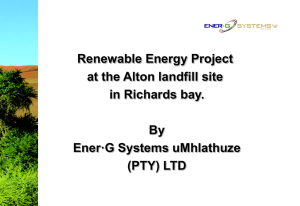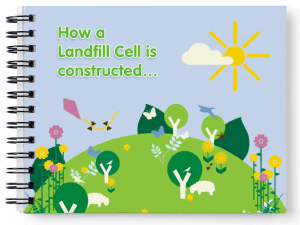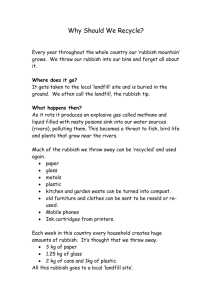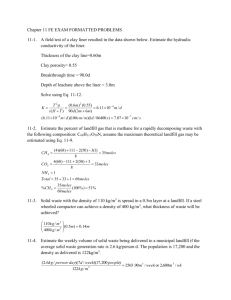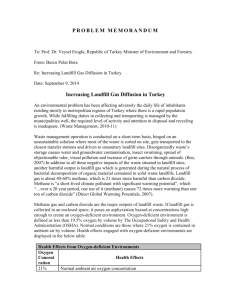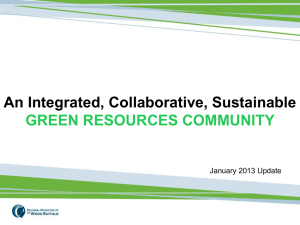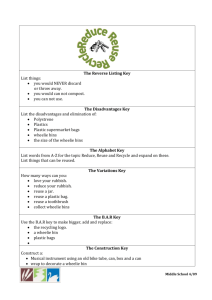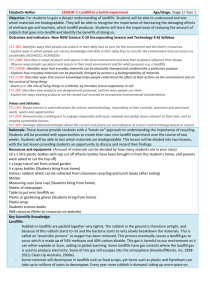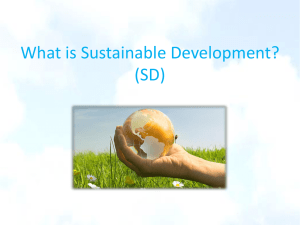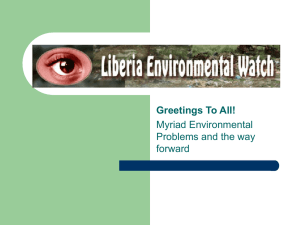What is Waste? Types, Impacts & Management | Brisbane Council
advertisement
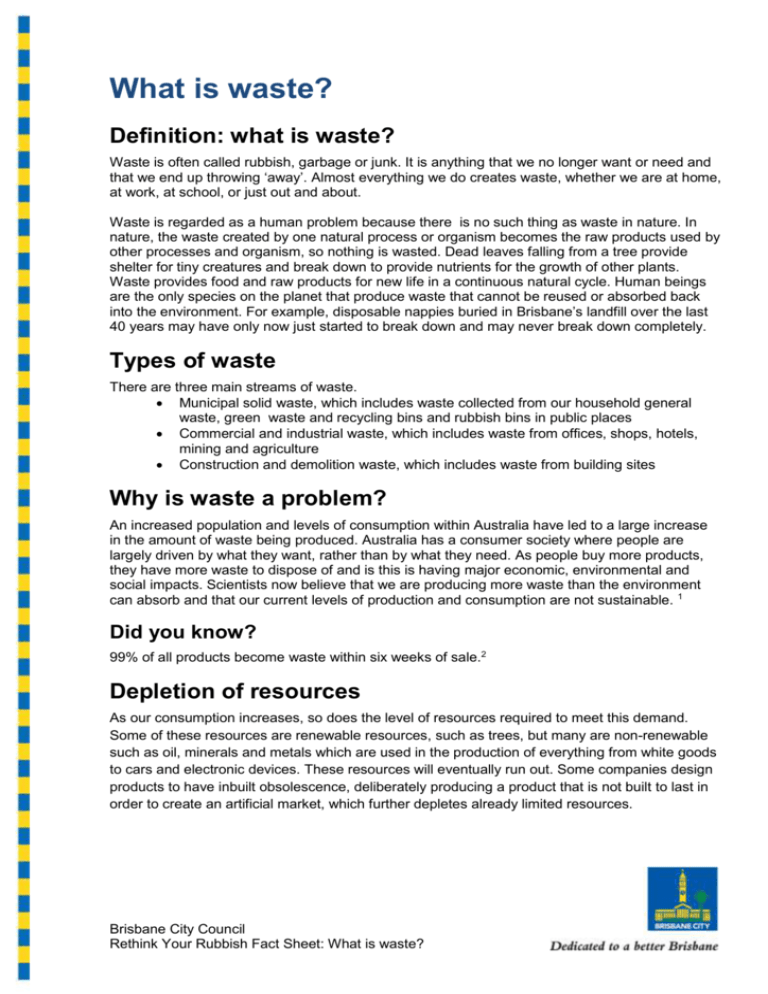
What is waste? Definition: what is waste? Waste is often called rubbish, garbage or junk. It is anything that we no longer want or need and that we end up throwing ‘away’. Almost everything we do creates waste, whether we are at home, at work, at school, or just out and about. Waste is regarded as a human problem because there is no such thing as waste in nature. In nature, the waste created by one natural process or organism becomes the raw products used by other processes and organism, so nothing is wasted. Dead leaves falling from a tree provide shelter for tiny creatures and break down to provide nutrients for the growth of other plants. Waste provides food and raw products for new life in a continuous natural cycle. Human beings are the only species on the planet that produce waste that cannot be reused or absorbed back into the environment. For example, disposable nappies buried in Brisbane’s landfill over the last 40 years may have only now just started to break down and may never break down completely. Types of waste There are three main streams of waste. Municipal solid waste, which includes waste collected from our household general waste, green waste and recycling bins and rubbish bins in public places Commercial and industrial waste, which includes waste from offices, shops, hotels, mining and agriculture Construction and demolition waste, which includes waste from building sites Why is waste a problem? An increased population and levels of consumption within Australia have led to a large increase in the amount of waste being produced. Australia has a consumer society where people are largely driven by what they want, rather than by what they need. As people buy more products, they have more waste to dispose of and is this is having major economic, environmental and social impacts. Scientists now believe that we are producing more waste than the environment can absorb and that our current levels of production and consumption are not sustainable. 1 Did you know? 99% of all products become waste within six weeks of sale.2 Depletion of resources As our consumption increases, so does the level of resources required to meet this demand. Some of these resources are renewable resources, such as trees, but many are non-renewable such as oil, minerals and metals which are used in the production of everything from white goods to cars and electronic devices. These resources will eventually run out. Some companies design products to have inbuilt obsolescence, deliberately producing a product that is not built to last in order to create an artificial market, which further depletes already limited resources. Brisbane City Council Rethink Your Rubbish Fact Sheet: What is waste? Did you know? Every wheelie bin of waste that we produce from our home equates to 70 wheelie bins of waste from the mining, manufacture, production and sale of the materials in that bin. 3 The type of waste generated in households and schools has changed dramatically over the last 50 years and has become increasingly diverse, toxic and non-biodegradable. 50 years ago, most of our waste was bio-degradable and would be broken down naturally by microorganisms in the same way that leaves from a tree break down. Many products such as milk bottles were reused and appliances were built to last and were able to be easily repaired. These days, products are not built to last, disposable products have become commonplace and plastic is everywhere. Plastic never breaks down completely as it is made out of petrochemical products and will always leave traces in the envirionment. Much of our modern day waste is highly toxic and needs to becarefully managed to protect the environment. In Australia, most of our waste ends up in landfill. There is little air or moisture in landfill to help waste break down and decomposition occurs extremely slowly, if at all. Once full, landfills still require long term environmental management and constant monitoring to ensure that there are no health and safety concerns such as toxins contaminating the waterways or soil, or landfill gas escaping into the environment. Waste that doesn’t end up in landfill may become litter polluting waterways and soil. Litter has the potential to afffect ecosystems and harm and kill birds and animals. Pollution may attract vermin, be smelly and visually offensive and may adversely affect people’s health. Did you know? The amount of plastic produced in the last 12 years is more than all the plastic produced in the last 100 years.4 Greenhouse gases from breakdown of waste Methane gas and carbon dioxide are generated from the breakdown of organic waste and contribute significantly to the greenhouse effect causing climate change. Methane gas is colourless, odourless, explosive and highly flammable. At Brisbane City Council’s landfill, this gas is collected and piped to an energy plant where it is either turned into electricity or burnt off. However, older rubbish dumps within Brisbane continue to produce methane gas, which Council monitors and controls to keep the surrounding environment safe. Did you know? Methane gas is 21 times more potent than carbon dioxide.5 Brisbane City Council Rethink Your Rubbish Fact Sheet: What is waste? Cost Collecting, processing, transporting and managing waste costs a lot of amount of money. As waste levels increase, so do these costs. Every piece of waste that ends up in landfill means the loss of valuable and often non-renewable resources. Reducing waste to landfill would help to conserve these resources. Recycling also benefits the economy through the creation of jobs, as re-processing materials into new products involves more jobs than sending these materials to landfill.6 1 www.ehp.qld.gov.au/waste 2 US National Academy of Engineering Study 1994 3 Effects on environment and health www.environmentvictoria.org.au 4 Callum Roberts, Ocean of Life: How are seas are changing, 2013 5 www.climatechangeinaustralia.com.au 6 Australian Government, National Waste Report, 2010 Brisbane City Council Rethink Your Rubbish Fact Sheet: What is waste?

